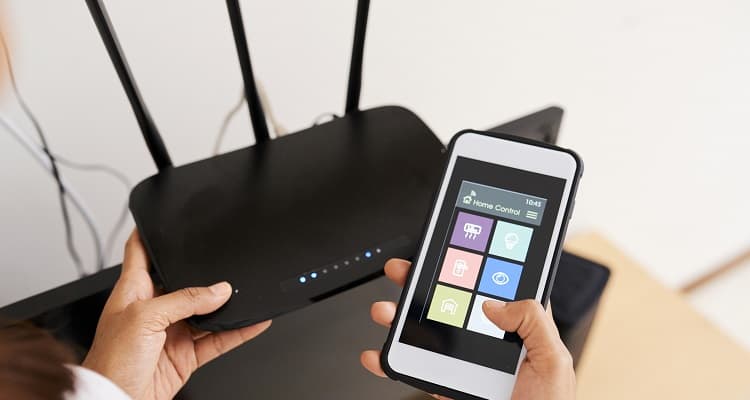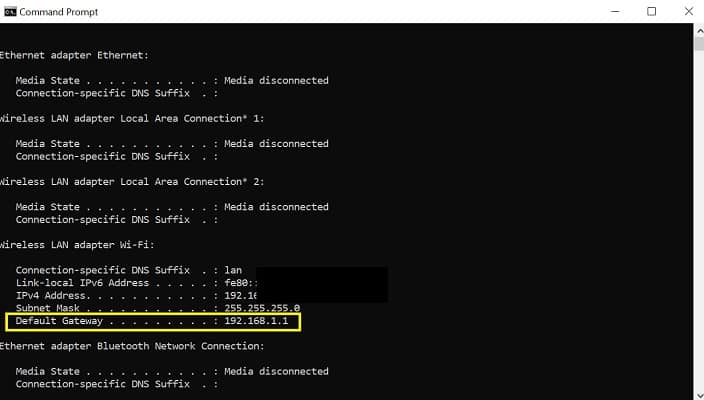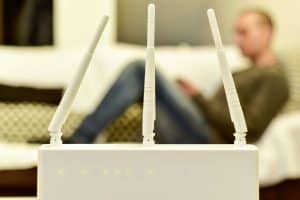If you’re about to enter the limitless world of IPTV streaming then you have probably come across talk about VPN during your research. VPNs and IPTV often go hand in hand in these kinds of discussions, which may have led you to the idea that one is inseparable from the other.
How necessary is a VPN for using IPTV? And what are the benefits of using IPTV with a VPN router, and the downsides for using IPTV without one?
All of these questions and more will be answered in this in-depth guide to using VPN routers for IPTV services.
What is a VPN Router?
VPN stands for Virtual Private Network. In the most basic terms, a VPN allows you to surf the web privately and securely by masking your actual IP address. VPN clients are typically downloaded onto a specific computer. With a , however, your VPN client is directly placed inside of your router so that all of your devices connected to the router will receive the benefits of using a VPN.
This is especially useful when you are going to use devices to access content that don’t support VPN natively, such as IPTV boxes. With a VPN router, you can simply connect to your Wifi or home network and use a VPN protected Internet connection.
How Does a VPN Router Work?

A VPN router works very similarly to a regular VPN installed onto an individual computer but with a couple of key differences. Normally, a VPN client can only be downloaded onto a single computer or other capable devices. Sometimes VPN companies offer deals that will allow you to have their VPN downloaded and installed on multiple devices.
A VPN router has the software directly installed into your router so that every device connected to it will receive the privacy and security benefits of the VPN. That includes all tablets, PCs, laptops, smartphones, and more. It is a far more convenient and affordable route for someone who wants to have VPN capabilities available for as many devices as possible. This especially comes in handy if you live in a house with several people that are all using IPTV streaming.
Do I Need a Special Router for VPN?
A VPN router comes in two kinds: a standard router that has the VPN installed, and a special pre-configured VPN router that already comes with a VPN service pre-installed.
It is important to keep in mind that not all standard routers are compatible will all VPNs and in fact, some routers can’t have any VPN installed at all depending on their age and their model.
How Do I Setup a VPN on my Router?
If you already have a router, the first thing you’ll need to do is make sure your router is compatible with the VPN service you are using. Check the VPN’s website for a support or tutorial page and look for their compatibility list of router brands and models.
The next thing you need to do is log into your router via a computer so that you can access and adjust its settings. You will need to follow these steps in order to locate your router’s IP address which is then typed into a web browser.
Android TV Box Bestsellers
For Windows users, hit the Windows key + R to open up the “Run” program window. Next type in “cmd” and hit OK.

This will bring up your PC’s command window. Type in “ipconfig” and then hit on Enter. Your IP address will now be displayed on the same line which reads “Default Gateway”. Copy or write down this number which should contain 10 numbers and type it into your web browser of choice.

For Mac users, you will need to click on the Apple icon in the top left-hand side corner of your screen. Click on “System Preferences” from the small menu that appears.
Next, select “Network” from the window that appears. On the next page, there will be a “Network name” drop-down box menu. Click on it and set it to “Secure” if it isn’t already. Next, click on the “Advanced” icon on the bottom of this page.
The last step is clicking on the “TCP/IP” tab which will display your router’s IP address. Copy or write down this IP address and then type it into your web browser of choice so that you can access your router’s settings.
Configuring your router to use a VPN will depend greatly depending on your brand and model.

Once again go online to the VPN website you are using and look for tutorials on how to configure your router to the specific VPN of your choice. Once the configuration is complete test it out by using a wi-fi device of your choice.
Buy Pre-configured VPN Routers
If you don’t have a router that is VPN capable then the best thing you can do is purchase a . These routers will already have a VPN pre-installed and will often give you a few months of the VPN service free of charge.
Slow Streams or Buffering?
Are your streams loading too slow? Getting constant buffering? Not able to stream at full resolution? Check out these tips to improve your streaming experience:
- Use a modern Router that has advanced features like QoS to prioritize video content. Check out our recommended Routers for Streaming.
- If you are using a Wifi connection, be sure to check out our 9 easy steps to improve your Wifi for Streaming.
- Some Internet Service Providers throttle video streaming traffic without telling their customers. A VPN encrypts all your traffic and circumvents throttling, blocking and geographical restrictions.
Luckily many VPN routers for IPTV are all readily available. Many router manufacturers and VPN companies have made various partnerships so that you can buy yourself a high-quality router with a high-quality VPN. Some of the most popular and reliable VPNs such as PureVPN or NordVPN have made partnerships with , , , and more so that you will have a VPN router for IPTV that will be ready right out of the box.
How to Connect Your IPTV Device to a VPN Router?

Once your router is fitted with a VPN you will need to connect it to your IPTV box. The two ways you can do this is to either connect your IPTV box to your VPN router via an ethernet cable or by using a wi-fi connection. If your router is already fitted with a VPN then all you have to do is connect your IPTV box to your router and input the router’s password as you normally would.
Does IPTV Work Better with a VPN?
The reason why using a for IPTV is considered the optimal way of viewing IPTV content is because of all the benefits you will receive. VPNs open up a lot of doors in the world of IPTV streaming that a regular router will not be able to provide.
One easy example of this is that many channels are blocked by your ISP when surfing your IPTV. The channels are usually blocked due to regional concerns. But with a VPN router for IPTV you can simply change the location of your IP address to a different country so that you will be able to bypass these regional blocks.
VPN routers for IPTV are also known to even improve the performance of your streaming by circumventing throttling that your ISP may place on you.
Keep in mind that while most IPTV services and IPTV boxes are compatible with VPNs and VPN routers, some are not. Make sure you get yourself IPTV components that do feature support for a VPN.
Do I Really Need a VPN?
Owning a VPN, in general, is always a great idea regardless of whether you are streaming IPTV or merely browsing the internet.
VPNs and VPN routers for IPTV are by far the best way to protect yourself when using the internet or streaming videos online. With your real location and IP address being encrypted you are given an excellent level of security and privacy that will protect you from any copyright infringement problems.
And as mentioned earlier, VPNs and VPN routers for IPTV allow you to access so much global content that the price more than makes up for how much more you will be able to access.
VPNs aren’t exactly mandatory for using IPTV, but because they offer so many incredible benefits you would be missing out on way too much. Therefore we highly, highly recommend getting a VPN especially if you are a frequent user of IPTV streaming.
Last update on 2026-02-16 at 08:12 / Affiliate links / Images from Amazon Product Advertising API. As an Amazon Associate I earn from qualifying purchases.